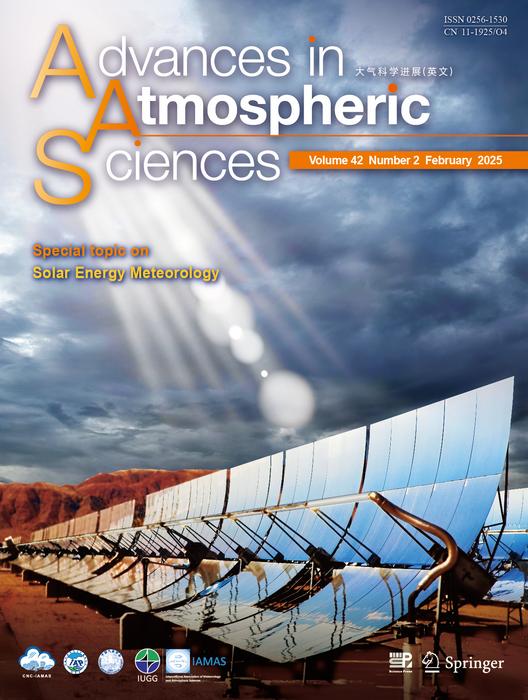Solar energy stands out as an increasingly efficient and cost-effective renewable resource, one that has the potential to significantly reduce reliance on fossil fuels. Yet, the realm of solar energy utilization is far from simple. Unlike traditional energy sources, harnessing solar power is fraught with challenges that extend beyond the capabilities of solar engineers. To confront these complexities head-on, a new and specialized branch has emerged known as solar energy meteorology, aimed at understanding and optimizing solar energy conversion in the face of various environmental factors.
Central to the field of solar energy meteorology is the critical task of evaluating long-term solar resource availability. This function enables the strategic placement of solar electricity farms in areas that can yield the highest energy return on investment. However, solar energy does not merely fluctuate over extended periods; it also experiences moment-to-moment variability dictated by weather conditions. Consequently, solar energy meteorology must incorporate short-term forecasting techniques to inform energy providers about the immediate availability of solar power. This capability allows for optimized scheduling and utilization of diverse power systems, thereby enhancing the overall efficiency of energy networks.
The integration of insights from atmospheric science with solar energy engineering is crucial for advancing solar energy meteorology. Historically, professionals in these fields have relied on distinct methodologies intrinsic to their disciplines, leading to silos of knowledge that fail to address the multifaceted demands of solar energy generation. Through collaboration and interdisciplinary research, experts can develop a more comprehensive understanding of the technical and scientific issues, unlocking innovative approaches to solar energy collection and distribution.
Recent scholarly work published in the journal Advances in Atmospheric Sciences underscores the urgency of interdisciplinary cooperation in solar energy meteorology. The journal’s special topic on this field comprises five invited articles that delve into a range of subject areas including satellite remote sensing, photovoltaic power forecasting, and the thermal efficiency of solar panels. These contributions showcase the ongoing progress and persistent challenges facing those in the field, offering a platform for sharing knowledge and promoting further research.
One illuminating article in this compilation discusses radiation services provided by Fengyun-4 satellites and their role in enhancing solar energy meteorology. This research emphasizes the importance of timely, accurate surface solar irradiance data—the measurement of solar energy received at the Earth’s surface. By leveraging an advanced satellite network, scientists aim to improve forecasting abilities and better anticipate solar energy availability while also addressing the limitations present in real-time data collection and dissemination methods.
Another pivotal contribution highlights the economic dimensions underpinning global photovoltaic technology deployment. The notion that solar technology installation must align with socioeconomic realities is paramount. Analysts stress that maximizing decarbonization efforts requires more than merely deploying technology where it is most feasible; rather, it demands approaching solar energy deployment through lenses that account for geographic and economic variances across nations. By opening dialogues about resource allocation and technological access, researchers aspire to foster a more effective and equitable global transition towards renewable energy.
The ongoing exploration of solar power curves represents a further necessary dimension of solar energy meteorology. These curves serve as tools to estimate electricity generation based on a wide array of meteorological variables, including temperature and irradiance. Gaining deeper insights into the relationship between environmental factors and solar energy output can enhance forecasting models and refine energy production predictions. This ability to accurately project energy generation not only aids consumers but also enhances the stability and reliability of energy grids.
Machine learning and statistical methods are revolutionizing the accuracy of solar power forecasts, as explored in another insightful article. By implementing advanced post-processing techniques that rectify systemic forecasting errors, researchers demonstrate how statistical models can be significantly improved. This cross-pollination of ideas from various fields signals a critical shift towards adaptive methodologies in solar energy forecasting, offering a tangible solution to one of the persistent challenges in the industry.
Evaluating the environmental impacts of solar farms necessitates an understanding of both thermal influences and ecological interactions. Large-scale solar installations can alter local environments, affecting everything from temperature regulation to dust concentration. By studying these dynamics, researchers seek to quantify and mitigate adverse effects while optimizing the operational efficiency of solar power plants. This holistic approach ensures that solar energy practices are sustainable and beneficial, aligning with broader environmental goals.
As the focus on transitioning energy systems continues to gather momentum, active collaboration between meteorologists and solar engineers becomes increasingly essential. The intricate mechanisms underlying solar energy harnessing and distribution necessitate a fusion of different perspectives and expertise. As both communities work in tandem, the drive toward a more sustainable energy future gains traction, fostering an environment in which renewable energy can truly flourish.
The shift from fossil fuels to renewable resources embodies a pressing global challenge that requires collective action. Understanding the complexities of solar energy generation, including uncertainties tied to weather patterns, is vital. Engaging with interdisciplinary insights fosters a deeper comprehension of the critical issues at hand. As researchers continue to navigate the intricacies of solar energy meteorology, they ultimately pave the way for a sustainable energy landscape that benefits society as a whole.
Overall, the recent discussions presented in the Advances in Atmospheric Sciences illuminate the pressing challenges and opportunities that lie within solar energy meteorology. By addressing the various dimensions of solar resource utilization, researchers aim to enhance efficiency, effectiveness, and sustainability in the field. The call for interdisciplinary collaboration serves as a beacon, guiding the way toward a future where solar energy can seamlessly integrate into our broader energy systems, rendering a cleaner, more sustainable world.
Subject of Research: Solar Energy Meteorology
Article Title: Advances in Solar Energy Meteorology: Bridging Gaps Between Atmospheric Science and Solar Engineering
News Publication Date: 28-Dec-2024
Web References: [Not available]
References: [Not available]
Image Credits: Advances in Atmospheric Sciences
Keywords: Solar energy, Meteorology, Renewable energy, Energy forecasting, Interdisciplinary research, Photovoltaic technology, Environmental impacts, Global decarbonization.





